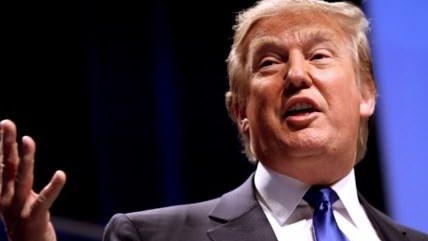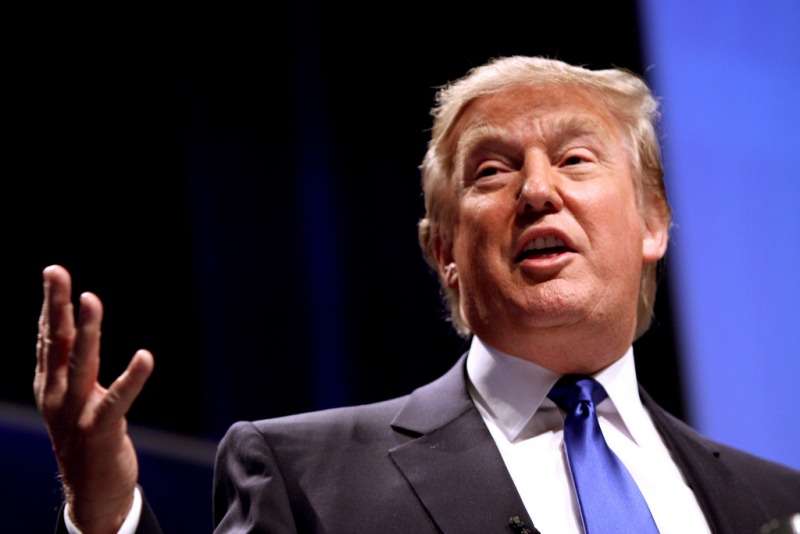Trumpmania Indicates Possible Rough Waters for Conservative Criminal Justice Reform
Will fearmongering force back the opportunity to scale back laws?


Toward the end of the first GOP presidential primary debate, Sen. Rand Paul struggled to toss in even just a mention of criminal justice reform in his closing comments. Though there has been a growing bipartisan push over the past few years to reform drug laws, mandatory minimum sentencing, and asset forfeiture regulations, it's been nearly absent as a discussion point recently among Republican candidates. Instead conservatives appear to be rushing in the other direction, yelling about crime caused by illegal immigrants, a non-existent "war on police," and premature fears of a crime surge.
I fretted about the absence of criminal justice reform as a GOP issue in August, and Talking Points Memo has a story up today exploring what's going on. Tierney Sneed doesn't exactly blame Donald Trump for this shift back to the bad-old-days of crime fearmongering, but his populist nativist appeal is warping the discussion:
Just a few months ago, reformers were celebrating that most of the 2016 GOP pack had signaled that, at least in theory, they supported retooling America's justice system. But, as has been the case with so many other sensitive issues, the entrance of Donald Trump has changed the dynamic. Now instead of talking about criminal justice reform, the GOP primary contenders are warning of a supposed nationwide crime spike, touting the mandatory-minimums in "Kate's Law," and lobbing "soft on crime" accusations.
"I'm concerned about the impact on the push for justice reform because we're expecting a bill at some point this month," Jason Pye, director of Justice Reform at the conservative FreedomWorks, told TPM. "I'm concerned about the impact of the rhetoric on that."
Trump may not solely be to blame for the shift in tone. But in interviews with TPM before his entrance in to the race, justice reform advocates expressed cautious optimism that the GOP field had more or less coalesced around curbing mass incarceration, and they believed it was unlikely to become a flashpoint in the primary.
Trump may have conflated the issue, they now contend, by linking illegal immigration and violent crime, thus prompting many of his rivals to take harder lines, too. Coupled with warnings of a summer crime spike, the campaign trail has taken a turn back to the '90s, with candidates falling into old patterns of invoking crime fears to rile their constituencies.
Sneed spoke to representatives of several reform-minded groups (including the Reason Foundation's own Lauren Galik) worried about the impact of this new campaign of fear. All these folks are working together to hash out a compromise bill, meant to be introduced in the fall, to scale back mass incarceration.
Now imagine asking a member of Congress in this newly minted era of outrage and fear to vote for such legislation as GOP candidates accuse each other of being "soft on crime." If the "outsider" rebellion represented by Trump and Ben Carson lasts, it could well be a recipe for a strong primary challenge for Republicans who support reform.
And so instead we end up with Kate's Law, which establishes new mandatory minimum sentences for illegal immigrants who re-enter the United States after deportation. This could potentially add more than 50,000 to the federal prison rolls. Read more worries about Kate's Law here.


Show Comments (99)